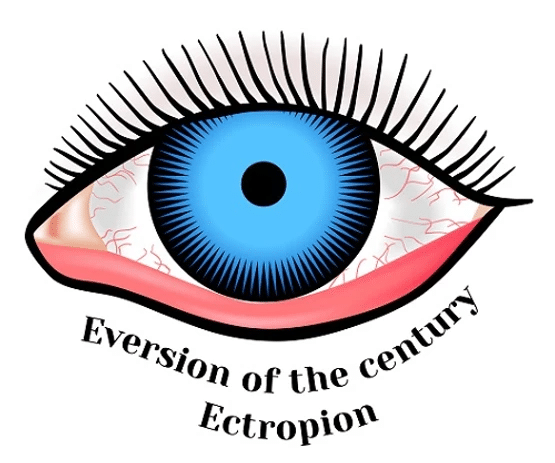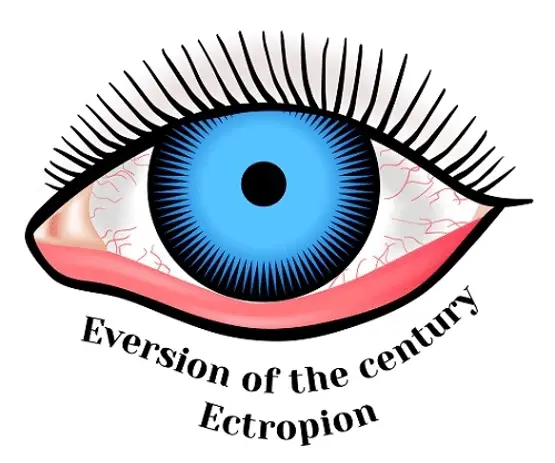4 top symptoms why my eyelid turns outwards
Punctal ectropion is where the lower eyelid droops away from the eye and turns outwards. There are several types; paralytic and involutional ectropion (muscle weakness), cicatricial (shortening of the muscles) and mechanical (caused by damage to the eye).
It is not considered a serious ailment but it can still cause discomfort causing the eyes to become sore, red and irritated. Which can seriously impact on your work and personal life.

What causes ectropion?
Ectropion occurs due to muscle weakness or tissue relaxation around the eye. This can be caused by nerve damage including; Bell’s palsy, a lump, cyst or a tumour on the eyelid as well as damage to the eyelid due to an injury.
In some cases, blocked tear ducts can also lead to ectropion as can some skin conditions such as dermatitis or overexposure to the sun.
Ectropion can also happen naturally as part of the ageing process and in some people, rapid weight gain or weight loss has been known to cause ectropion. In rare cases, ectropion can be present at birth.
4 top symptoms can include:
1. Excessive watering of the eyes
This is a common symptom of ectropion but can also be caused by other ailments such as an allergy, conjunctivitis, blocked tear ducts or dry eye syndrome.
2. Dry eyes
Ectropion can also cause the eyes to feel excessively dry and gritty but dryness can also be caused by blocked tear ducts, the environment, contact lenses and some medications.
3. Discharge
In some cases, mucous cannot naturally drain away and can build up around the eye causing discomfort. Over-night excess mucous can create a crust as it dries. Conjunctivitis and other infections can also cause discharge from the eye.
4. Bacterial infections
Although not caused by an infection, ectropion can make the eyes more susceptible to bacterial infections such as conjunctivitis. After cataract surgery, there is a higher risk of endophthalmitis due to the lack of drainage of tears and therefore surgery for ectropion maybe suggested before any other eye surgery is performed.
Treatments
It is advisable to visit your GP if you think you have ectropion so that you can be referred to an ophthalmologist for treatment.
When to consult your local optician
Mild cases do not require treatment but eye drops or topical ointments may be prescribed. A minor operation maybe suggested to lower the eyelid so that it fits comfortably over the eyeball again. The procedure is done under local anaesthetic, quickly and without discomfort, usually without a stay in the hospital.
Related articles





